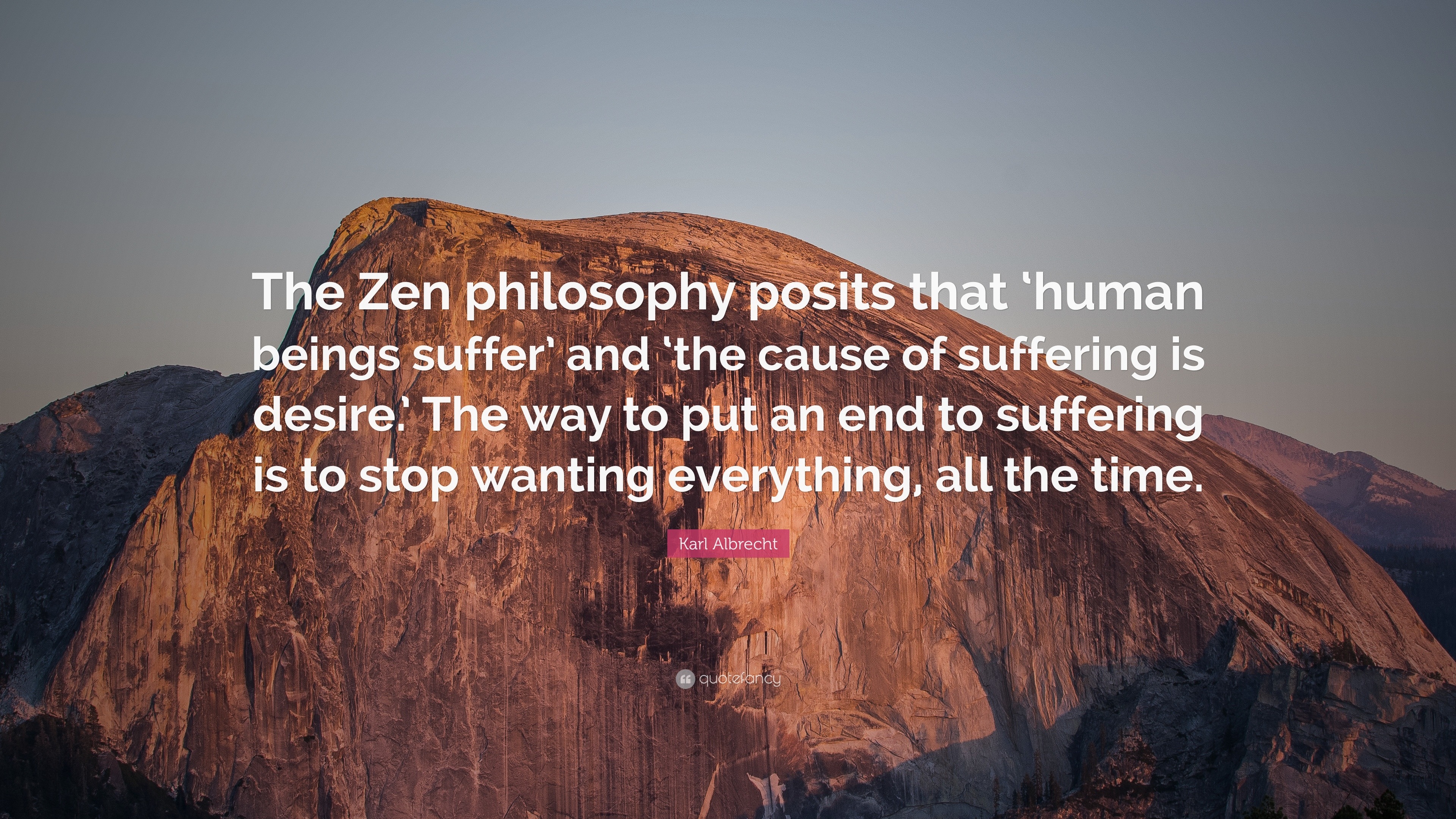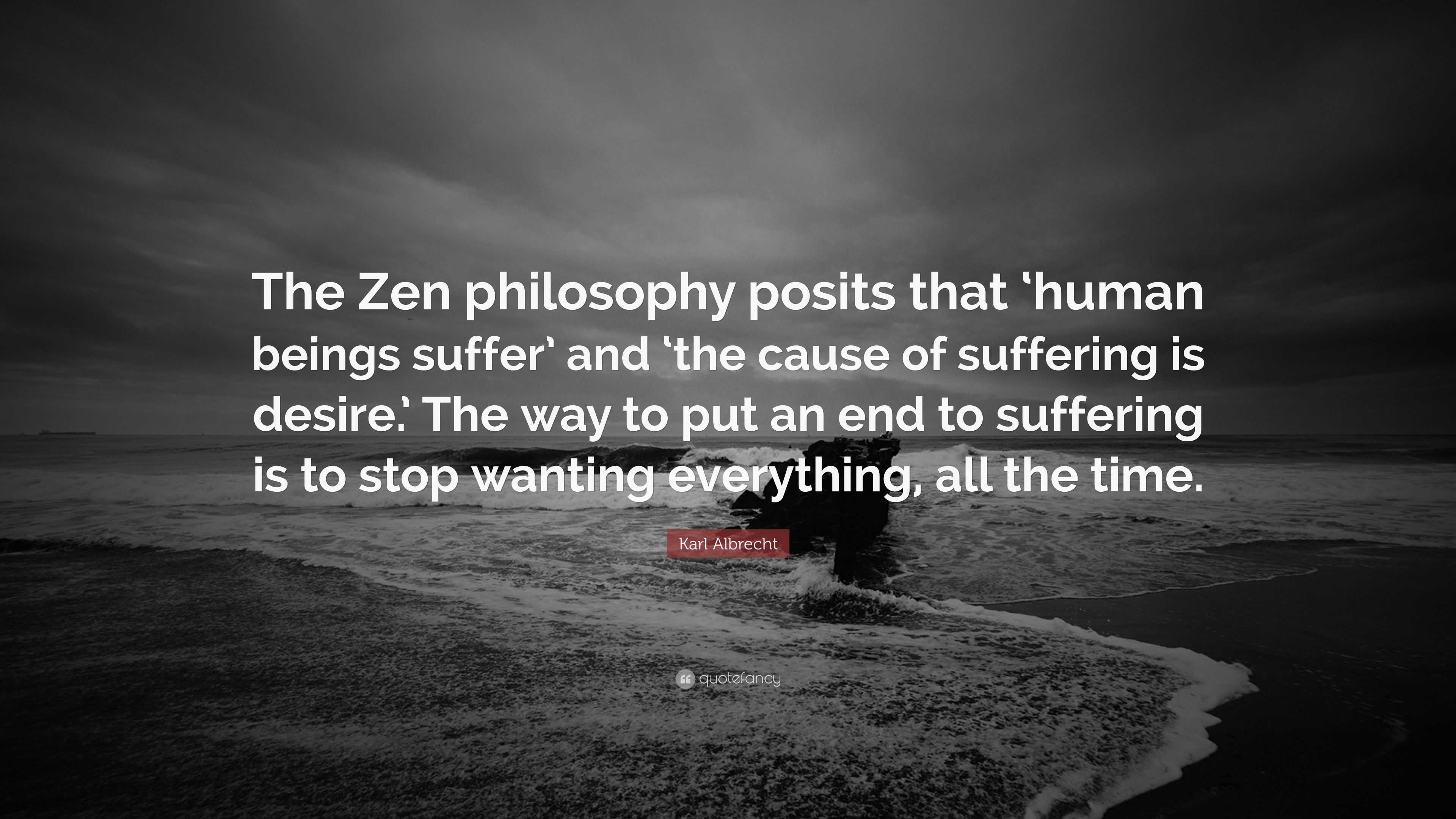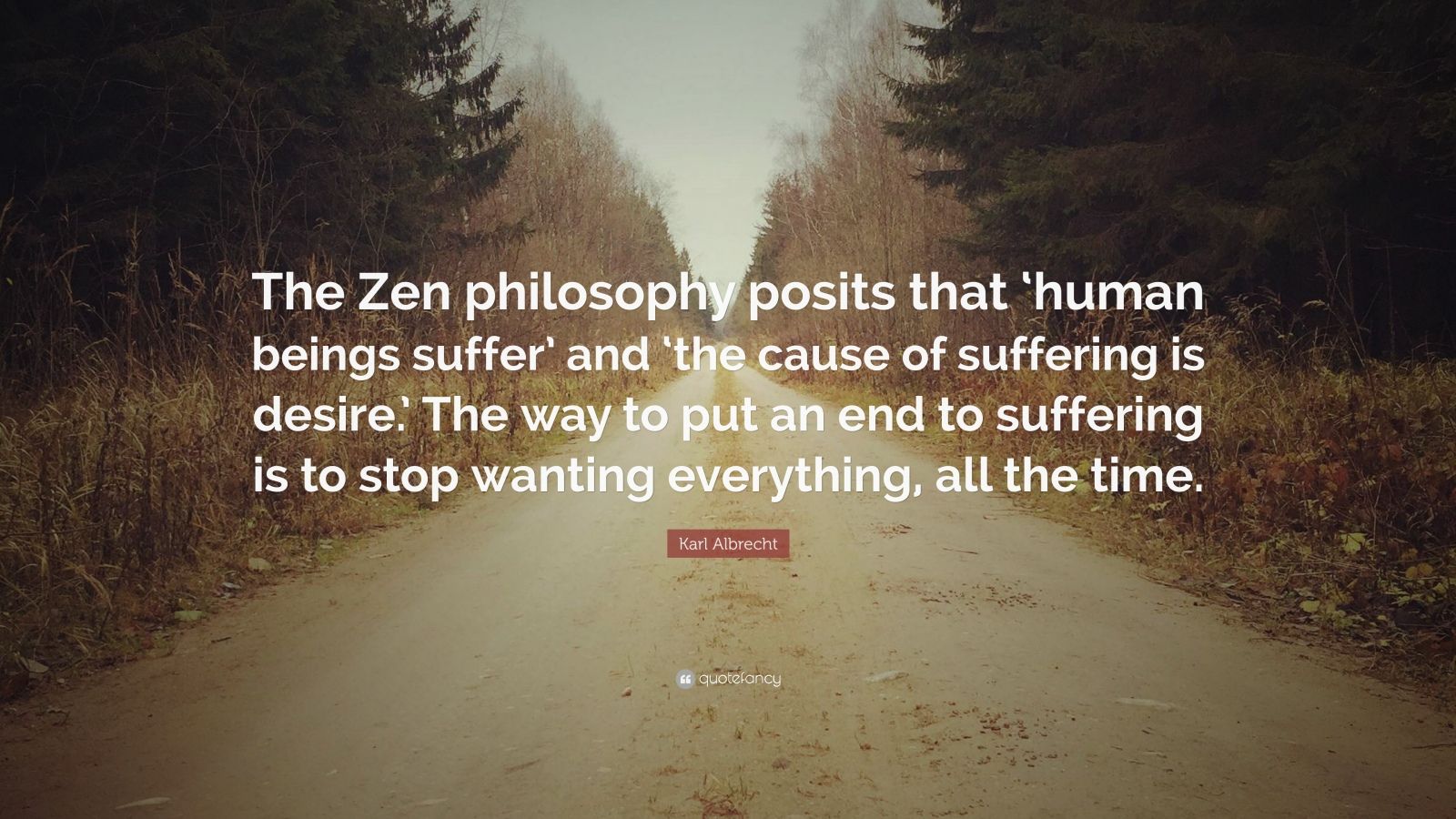Adding a bit more zen to your life is indeed necessary. The zen philosophy focuses mainly in becoming more mindful in all aspects of life. People need to find their center and become more in tune with themselves and their surroundings in order to de-attach themselves from their busy and stressful lives.
What is the Zen Philosophy? While a lot of people consider Buddhism to be a religion, most practitioners will tell you it is more ‘a way of life’ or a life philosophy. Buddha himself has always said he was not a god but just a human like all other people. Everybody can learn what he learned and to help us with that he laid down the basics of his discoveries in the Four Noble Truths and the Eightfold path.
Don’t Miss: 15 Stress Relief Gifts For Those Who Can Use A Little Zen In Their Life
- Zen is a liberation from time. For if we open our eyes and see clearly, it becomes obvious that there is no other time than this instant, and that the past and the future are abstractions without any concrete reality.
- Zen Philosophy Books. Showing 1-50 of 55. Zen and the Art of Motorcycle Maintenance: An Inquiry Into Values (Phaedrus, #1). (shelved 4 times as zen-philosophy) avg rating 3.77 — 205,160 ratings — published 1974.
- Sep 27, 2017 Veneration of one’s teachers is an integral component to Zen philosophy. Way of Zen is similar to the concept of Dharma, meaning a path to follow. EXercises such as kinhin (walking meditation) or samu (mindful work) are practiced to develop mind and body in Zen balance.
- In the life of a Zen monk, sitting meditation (zazen) is one of the most important parts of his day. Each day, there is time designated just for sitting. This meditation is really practice for learning to be present. You can devote time for sitting meditation, or do what I do: I.
Incorporating zen principles in life is a great way to improve the way that people perceive the world, and essentially, it benefits the person given that it appears as an act of self-love.
Living a zen lifestyle involves changing a lot of things from your current routine in order to find happiness in life. There will come a time when people will start to self-reflect about themselves and their lives, and therefore they will seek for alternative methods to find meaning in life.
A lot of people often turn to meditation or even yoga practices to become more in tune with their bodies and to connect more with their inner self. Often, adapting a zen philosophy is the best way to make a radical transformation. Making a big change can improve your relationships and overall your life.
These powerful realizations can be quite transformative given that it is a turning point in everyone’s life, and people often search for spirituality or something else that leads into personal development and growth.
Here is where zen principles or the zen philosophy comes in handy, these are transformative steps into personal growth. These practices have to be done with a clear understanding and a purpose behind them in order to make them count. It is a process of self-awareness that can lead to inner fulfillment.
Top Zen Philosophy Principles
Zen Philosophy Quotes
1. Suffering is inevitable, but you are the one who can end it
This Buddhist zen principle is by far one of the best ones. People will experience suffering in life without a doubt, but it is up to you how you chose to deal with it. Real pain is inevitable, and life is full of situations that will put you in a position of suffering, and therefore how you chose to deal with that pain is what will allow you to either stall and stay in the same place all of your life, or it will help you grow from that lesson and develop within yourself.
2. Free yourself from attachment
People have a tendency of becoming attached to every physical thing in life. Whether this is a person, a house, a car, a dream, or even just materialistic stuff like a bag or a pair of shoes. The zen philosophy teaches people that attachments just make people vulnerable and allows them to become hurt, given that nothing lasts forever and you have to be prepared to let things go. Becoming attached to things means that you are looking for happiness in external sources, when in reality you should look for happiness within yourself and your surroundings.
3. Letting go brings peace and freedom
Very much like freeing yourself from attachment, this zen philosophy talks about letting things go and allowing yourself to move on in order to be more open to what is next to come, and allowing the past go.
4. Nothing is permanent
Learning this principle in life can be really powerful as you learn that nothing is worth wasting your happiness given that nothing is permanent. Everything is transient and everything changes, and therefore, people need to be ready for any upcoming changes or transformations, in order to allow things to flow with peace and freedom.
5. Live simply
Another amazing zen philosophy that needs to be applied by everyone. When people allow things to flow, and life simply, nothing seems complicated or stressful enough to tamper with your freedom. Therefore, make sure that you become more minimalistic in every aspect of life in order to see what true happiness looks like.
6. Everything is already perfect
One big aspect of life is learning that things are already great as they are, and you don’t need to be in a constant search for a change. Many people focus on what else they want in life or they constantly search for more ways to change their current situation, and therefore, nothing is ever enough. Another great zen philosophy principle is learning to accept your current situation and find happiness with what you have.
Not that you limit yourself into wanting more, but not being satisfied ever is a great way of suffering.
You Might Also Enjoy: The 20 Best Meditation Books for 2020
Pin this graphic below to Pinterest to save for later!
Maseo Abe: Self-Awakening and Faith — Zen and Christianity Abe looks at some of the differences between Zen and Christianity pointing out the contrasts between God and Nothingness, faith and enlightenment and salvation and self-awakening. from Christianity Through Non-Christian Eyes (Faith Meets Faith Series) Orbis Books, 1990
Christoph Anderl: Zen Rhetoric: An IntroductionWhat Kind of Rhetoric…and Why? Anderl looks at how words and rhetorical structures are used in Zen Buddhist texts to both illuminate as well as promote doctrinal viewpoints. Although Zen texts frequently stress 'their incapability to express the ultimate truth', Anderl explores some of the linguistic devices used to spread the message of Zen teachings. from: ' target='_blank'>Zen Buddhist Rhetoric in China, Korea, and Japan
Yoko Arisaka: Beyond 'East and West': Nishida's Universalism and Postcolonial Critique Arisaka looks at Kitaro Nishida's philosophical 'universalism' which Nishida's defenders claim is incompatible with imperialist nationalism and finds that 'Philosophical universalism is not in itself anti-imperialist, but can in fact contribute to imperialist ideology.' from The Review of Politics 59:3, Summer 97, pp. 541-560
Michael Berman: Time and Emptiness in the Chao-Lun Berman looks at the Madhyamika Buddhist-Taoist Seng-chao's Book of Chao and discusses the use of language and how Seng-chao, through sunyata and marga, understood time. from Journal of Chinese Philosophy Vol 24, 1997 pp43-58
Zen Philosophy Of Mindfulness
Jørn Borup: From Elite Zen to Popular Zen: Readings of Text and Practice in Japan and the West This article is a precursor to the one below. The article addresses the theme of 'popular' Zen in both Japan and the West. Borup concludes with 'reflections on the relation between one particular kind of popular culture, “Zen spirituality,” and its apparent lack of parallel in Japan.
Easternization of the East? Zen and Spirituality as Distinct Cultural Narratives in Japan This article aims to investigate how and to what extent 'Zen' and 'spirituality' are related as narratives and religious practices in a contemporary Japanese context. While there are overlaps, it is argued that the two domains are separate and that such a division is based on general differences in culturally constrained narratives (Western/Japanese, Zen/spirituality). Besides focusing on a concrete Japanese context, the article also contributes to research on global and transnational (Zen) Buddhism as well as to the field of comparative spirituality. from Journal of Global Buddhism Vol. 16 (2015): 70-93
Johannes Bronkhorst : Did the Buddha Believe in Karma and Rebirth? Bronkhorst investigages the early sayings of the Buddha to try to determine the Tathagata's position on these two key concepts. from the Journal of International Association of Buddhist Studies, Volume 21 • Number 1 • 1998

Chung-Ying Cheng: On Zen (Ch'an) Language and Zen Paradoxes “this essay plans to inquire into the logical and semantical significances of the dialogic exchanges (kung-an, koan) in Zen language and discourse as well as to clarify their methodological and ontological basis…In what logically intelligible way does a puzzle or a paradox as generated in a dialogic exchange derive its extraordinary meaningfulness as a tool for reaching or revealing the ultimate truth?…How is the paradoxicality or puzzlement of such a puzzle or paradox to be rationally explained and logically dissolved?” from Journal of Chinese Philosophy
Onto-Epistemology of Sudden Enlightenment in Chan Buddhism: Cheng explores the epistemology of enlightenment and the relationships between enlightenment and knowledge. from Chung-Hwa Buddhist Journal, May 2000
Sungtaeik Cho: The Rationalist Tendency in Modern Buddhist Scholarship: A Revaluation The author argues that Buddhism cannot be understood by rational Western philosophical methods but reminds the reader that Buddhist thought is based on knowledge acquired through meditation. A short essay, but worthy. Originally published: Philosophy East and West Vol.52 No. 4 Oct. 2002
Michael Clasquin: Real Buddhas Don't Laugh: Attitudes towards Humour and Laughter in Ancient India and China Clasquin tries to answer why Zen uses humour when the Vinaya and other codes of conduct expressly forbid laughter. He investigates early Hindu humour and uses modern philosophy to discover the types of humour in Zen. from Social Identities, Volume 7, Number 1, 2001
Edward Conze: In this two-part series of essays, Conze looks at similarities and differences between Western philosophy and Buddhist thought. Conze says, 'my interpretation of Buddhism is the conviction ... that it is essentially a doctrine of salvation, and that all its philosophical statements are subordinate to its soteriological purpose.' In Buddhist Philosophy and It's European Parallels, Conze finds 'only three currents of European philosophy which can significantly be compared with Buddhism, i.e., [1] the Greek Skeptics, [2] the wisdom-seeking mystics, and [3] the monists and dialecticians.' In the second part, Spurious Parallels to Buddhist Philosophy, Conze points out 'When we compare Buddhist and European thought, it happens quite often that the formulations agree, whereas considerations of their context, of the motives behind them, and of the conclusions drawn from them suggest wide discrepancies. Verbal coincidences frequently mask fundamental divergences in the concepts underlying them.' from Philosophy East and West 13, no.1, January 1963.
Asian Philosophy Vol. 17, No. 3, November 2007, pp. 283–292


Henry Cruise: Early Buddhism: some recent misconceptions'The main point is that there is a case to be made that Early Buddhism was empirical, in the way that modern science might be said to be empirical. but not in the way in which 'the Lord Buddha finds himself conscripted as a supporter of the British Philosophical tradition of empiricism'.' from Philosophy East and West, Volume 33, no.2 April, 1983
Robert Ellis : How Buddhist Was Plato? Plato and his teacher Socrates laid the foundation for Western philosophy. Ellis explores Platonic thought in a Buddhist light: 'Plato does seem to have betrayed the most basic principles of his teacher, but the tendencies, which gave rise to that betrayal, are already present in Socrates' view as it is reported in the Socratic dialogues. From a Buddhist viewpoint the weaknesses can be clearly seen as due to a failure to fully understand a non-dualist approach, which could have given greater consistency to the flashes of insight that, we find in both Socrates and Plato.'
Ronald Epstein: The Transformation Of Consciousness Into Wisdom In The Chinese Consciousness-Only School According To The
 Cheng Wei-Shi Lun Epstein looks at the consciousness-only school of Buddhism and briefly delineates the stages of transformation, and how after transformation is complete and Buddhahood has been realized, tries to indicate how the immanent aspect of Buddhahood utilizes wisdom to function in the world.
Cheng Wei-Shi Lun Epstein looks at the consciousness-only school of Buddhism and briefly delineates the stages of transformation, and how after transformation is complete and Buddhahood has been realized, tries to indicate how the immanent aspect of Buddhahood utilizes wisdom to function in the world. Zen Phrases
Bernard FaureZen Philosophy Quotes
: Bodhidharma as Textual and Religious Paradigm Faure uses structural criticism to analyse Bodhidharma's life as a literary piece belonging to the genre of hagiography, rejecting obsolete concepts of historical individuality and all methodological extremes to reach a new, limited understanding of 'Bodhidharma's coming from the West'.Asaf Federman: Literal Means and Hidden Meanings: a New Analysis of Skillful Means Federman explores what is meant by 'skillful means'. 'Skillful means is therefore not a mere pedagogical device of matching the right simile to the right person. It is also not exactly the idea that the teachings should be abandoned after a person reaches a goal. It is rather a sophisticated explanatory tool that enables a new religious movement to claim that what has been widely accepted as true is actually not true, and that truth is, and has always been, something else. ' from Philosophy East & West Volume 59, Number 2 April 2009 125-141
 Toby Avard Foshay: Denegation, Nonduality and Language in Derrida and Dogen Buddhism and post-modernism for those who love this kind of thing. from: Philosophy East and West.
Toby Avard Foshay: Denegation, Nonduality and Language in Derrida and Dogen Buddhism and post-modernism for those who love this kind of thing. from: Philosophy East and West.